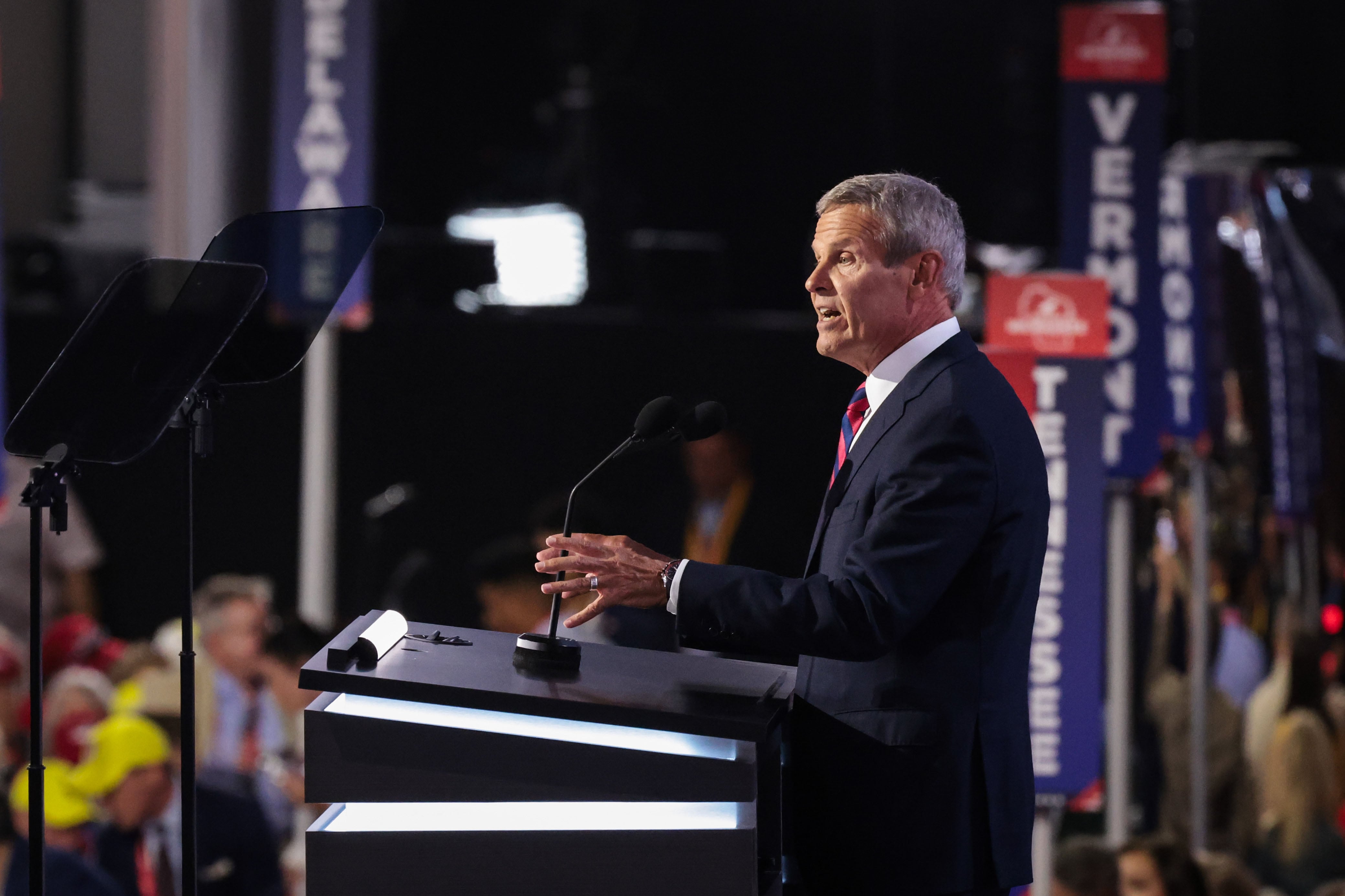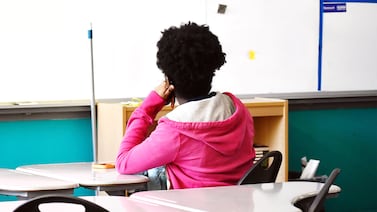Sign up for Chalkbeat Tennessee’s free daily newsletter to keep up with statewide education policy and Memphis-Shelby County Schools.
In one of the battleground states of the Civil Rights Movement, Tennessee Gov. Bill Lee is drawing heat for his description of school choice as “the civil rights issue of our time.”
Lee, who chairs the Republican Governors Association, made the comparison Tuesday during a four-minute speech to the Republican National Convention in Milwaukee as he attacked the Biden administration’s record on education, border security, inflation, and farm policies.
“They attacked parental rights. Republican governors fought back for a parent’s right to choose their own child’s education,” Lee told delegates. “President Trump was right when he said that school choice is the civil rights issue of our time.”
Back in Tennessee on Wednesday, the state Senate’s Democratic Caucus issued a joint statement calling Lee’s assertion “not only misleading but deeply offensive.”
“Tennessee has a proud history of leading in the fight for civil rights — from the lunch counter sit-ins and Freedom Rides to school integration and labor rights,” the caucus said. “To label a policy that promotes segregation and inequality as a civil rights issue is a grave disservice to the legacy of those who fought for justice in our state.”
The verbal scuffle comes as Lee pushes for a universal school voucher bill, a key school choice policy, in Tennessee. It would provide taxpayer funding to pay toward private school tuition for any student who wants it, anywhere in the state, including those from middle-class and wealthy families.
Lee’s proposal collapsed in committees during the recent legislative session, but he’s vowed to bring it back in 2025. To try to change the outcome, he recently endorsed Republican legislative candidates who support vouchers in their primary races over fellow Republicans who oppose the policy.
With school choice as a pillar of his own campaign platform, Lee easily won two terms in office in a state that went from blue to deep red in recent decades. But the results of various voter polls on vouchers vary wildly in Tennessee, and opponents charge the policy amounts to social welfare for the wealthy.
“The true civil rights issues of our time are those that uplift and support all children, regardless of their background. Private school vouchers do the exact opposite,” the Senate Democratic caucus said.
But Republican voucher supporters say they’re needed to put parents in charge of their children’s education. Expanding parental rights and school choice is part of the Republican Party’s 2024 platform, which delegates approved on Monday.
Tennessee has a long and blemished record on civil rights issues.
In 1920, it became the 36th and final state needed to ratify the landmark 19th Amendment to the U.S. Constitution, which gave millions of women the right to vote.
In 1960, at the height of the movement to abolish legalized racial segregation and discrimination, a group of college students including Diane Nash formed the Student Nonviolent Coordinating Committee in Nashville. The chairman was a young John Lewis, a student at Nashville’s Fisk University, who went on to become a civil rights icon and longtime congressman from Georgia before his death in 2020.
And the Rev. James Lawson Jr., who died last month at age 95, was the apostle of nonviolent protest who trained civil rights activists in Tennessee to withstand brutal responses from white authorities.
In 1968, Martin Luther King Jr. arrived in Memphis to march with sanitation workers in their fight for equality, dignity, and respect. Instead, he was assassinated on the balcony of the Lorraine Motel, which today is the site of the National Civil Rights Museum.
The Tennessee portion of the U.S. Civil Rights Trail spotlights 14 churches, schools and other landmarks that played an important role in the Civil Rights Movement of the mid-20th century, where many civil rights leaders and supporters were killed or targeted because of their struggle for freedom.
Lee’s office did not respond Wednesday when asked whether his comparison of school choice to civil rights was appropriate.
Marta Aldrich is a senior correspondent and covers the statehouse for Chalkbeat Tennessee. Contact her at maldrich@chalkbeat.org.







